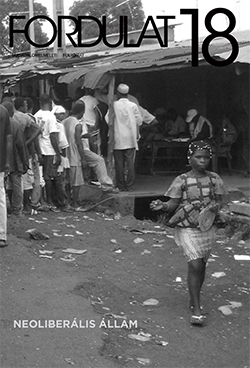Úgy gondolkodni a neoliberalizmusról, mintha a válság épp most történne
Thinking about neliberalism as if the crisis was actually happening
Author(s): Don KalbSubject(s): Politics / Political Sciences, Anthropology, Social Sciences, Sociology, Cultural Anthropology / Ethnology, Culture and social structure , Globalization
Published by: Fordulat
Keywords: neoliberalism;global anthropology;
Summary/Abstract: Don Kalb’s article has been published in the 2012 summer edition of Social Anthropology,as it was a contribution to the review’s debate on the ’historical anthropology ofactually existing neoliberalism’. Kalb enters a debate with Loic Wacquant in the first place,whose anthropological works he finds too much of an institutionalist approach, too muchinspired by Bourdieuean rigid structuralism. On the contrary, Kalb thinks of neoliberalismas something much more relational and dynamic, and this way he can easily extendhis interpretation in order to contain the wave of discontent appearing in the form ofpopular mobilisations. In the first part Kalb evokes Wacquant’s argumentation about thepenal complex, for which Bourdieu’s concept of the ’bureaucratic field’has been chosenas the conceptual ground. He shows that actual policy processes and the mytho-poeticssurrounding and legitimising them can be seperated analitically only until neoliberalismhas a hegemonic role in the political field; as an illustration he presents the upsurge ofthe populist right and the matchmaking with political liberalism at the same time. He alsoreveals that the formation of the punitive state described by Wacquant is one possibleoutcome of the financialised interests of the ruling elites; however, he stays away fromthe ’economism-focused’ perspectives when trying to feature class formation processes.Finally, reviving some crucial moments of neoliberalism’s coming to power, he tries tosketch a general image of 21st century capitalism, as something driven by economic andsocietal forces and becoming more and more fragmented, yet more and more solid at thesame time.
Journal: Fordulat (2008-tól Új Folyam)
- Issue Year: 2012
- Issue No: 18
- Page Range: 74-93
- Page Count: 20
- Language: Hungarian

